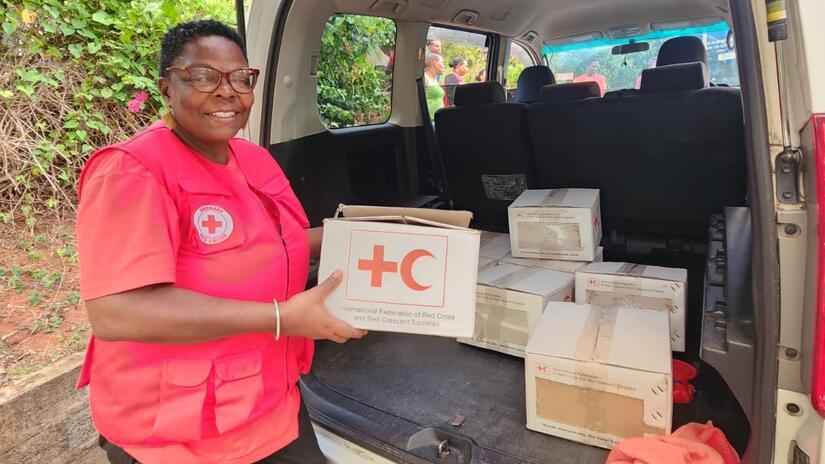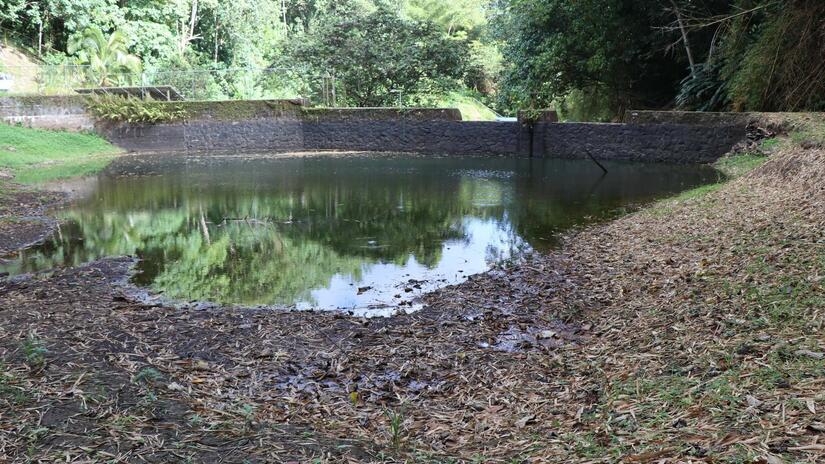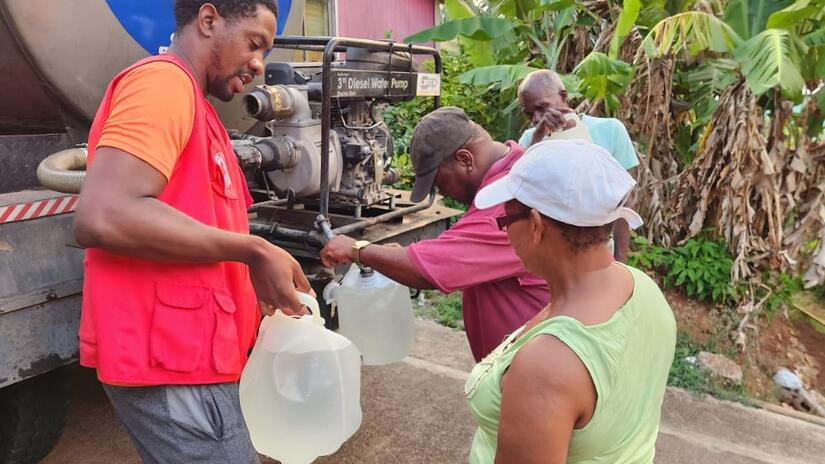An island nation in the eastern of the Caribbean Sea, Grenada is going through the most severe water crisis in the last 14 years.
Alarmed by unprecedented low water levels in reservoirs, the Government of Grenada officially declared a water crisis on May 10, 2024, leading to significant temporary water rationing measures that were lifted in June.
“For the past few months since the heatwave began our dams which are the main source of water have dried up significantly,” says Noreen Cox, a long-time volunteer of the Grenada Red Cross who manages a wide range of disaster preparedness and response challenges. “Ultimately, this led to significant drought conditions and a severe water shortage.”
“The water company began using water from its back up source (Grand Etang Lake), however, over time this source also depleted since the water was not being replenished.”
In addition to the water crisis, Grenada is currently experiencing a significant heatwave, the most recent being on May 6, 2024, where temperatures have consistently exceeded 31.7 degrees Celsius for several consecutive days.

Volunteers from Grenada Red Cross distributed relief items to communities affected by the water shortage.
Photo: Grenada Red Cross Society
Rising risk of fire
This heatwave has exacerbated the water shortage, increasing the stress on the already limited water resources, and adding to the challenges faced by the population.
“Also, due to the heatwave there was an increase in bush fires throughout the island. Grenada is a volcanic island and so the intense heat and presence of sulphur is causing natural fires that are sometimes spread rapidly due to the wind”.
People here worry that the severity of the current drought and the structural challenges suggest that the water crisis may persist at least until the peak of the next rainy season, which typically occurs around August or September. Communities across the southern and eastern parts of the island (St. Andrew, St. David and St. George) have been most affected.
Recent rains have helped fill reservoirs, however water supplies are still not sufficient to meet needs due to the long-standing drought and conservation methods are still being encouraged.
“The people who farm as their livelihood also have a severe strain since the ground is extremely dry and there is a lack of water,” Cox adds. “As such, most of the crops cannot withstand the harsh conditions and die, this ultimately led to a shortage in some of the locally grown fruits and vegetables”.
Long-term solutions involving infrastructure improvements, better water management practices, and increased conservation efforts will be crucial in mitigating the impacts and preventing future crises.
The IFRC is helping to support the Grenada Red Cross response. Through the IFRC’s Disaster Response Emergency Fund (IFRC-DREF), the Grenada Red Cross Society aims to assist at least 1,000 families (5,000 people) with water, sanitation and hygiene support and multipurpose small cash grants.
“Water trucks visit different communities at varying times to deliver water to the people,” says Cox, adding that people use water buckets to wash and even water plants.
The Grenada Red Cross has also partnered with the National Water and Sewerage Authority (NAWASA) to distribute jerry cans, water filters, water drums and other supplies to people in the community as they collected water from water trucks.
These tools give people additional storage options for clean water. Meanwhile, Red Cross volunteers educate the public about how to use these tools in ways that best promote water conservation.

The Les Avocat Dam, a crucial water reservoir that is designed to supply 300,000 gallons, it's currently only able to distribute 180,000 gallons.
Photo: NAWASA
Heat stress
The Grenada Red Cross is also doing what it can to address the constant stress and anxiety associated with securing daily water needs. The loss of livelihoods due to water shortages exacerbates these stress levels. The National Society is working to creating awareness about mental health issues and offering support for those affected.
To address the immediate livelihoods needs, GRCS will conduct a feasibility study to ascertain the functionality of the markets for multipurpose cash transfers to vulnerable households in the affected districts.
GRCS will consider other options such as procurement and distribution of relief food (in-kind support). While immediate measures are being taken to address the crisis, the situation in Grenada is expected to remain critical for the foreseeable future.
Sustained efforts and humanitarian support will be essential to navigate through this challenging period and build resilience against future water shortages.

